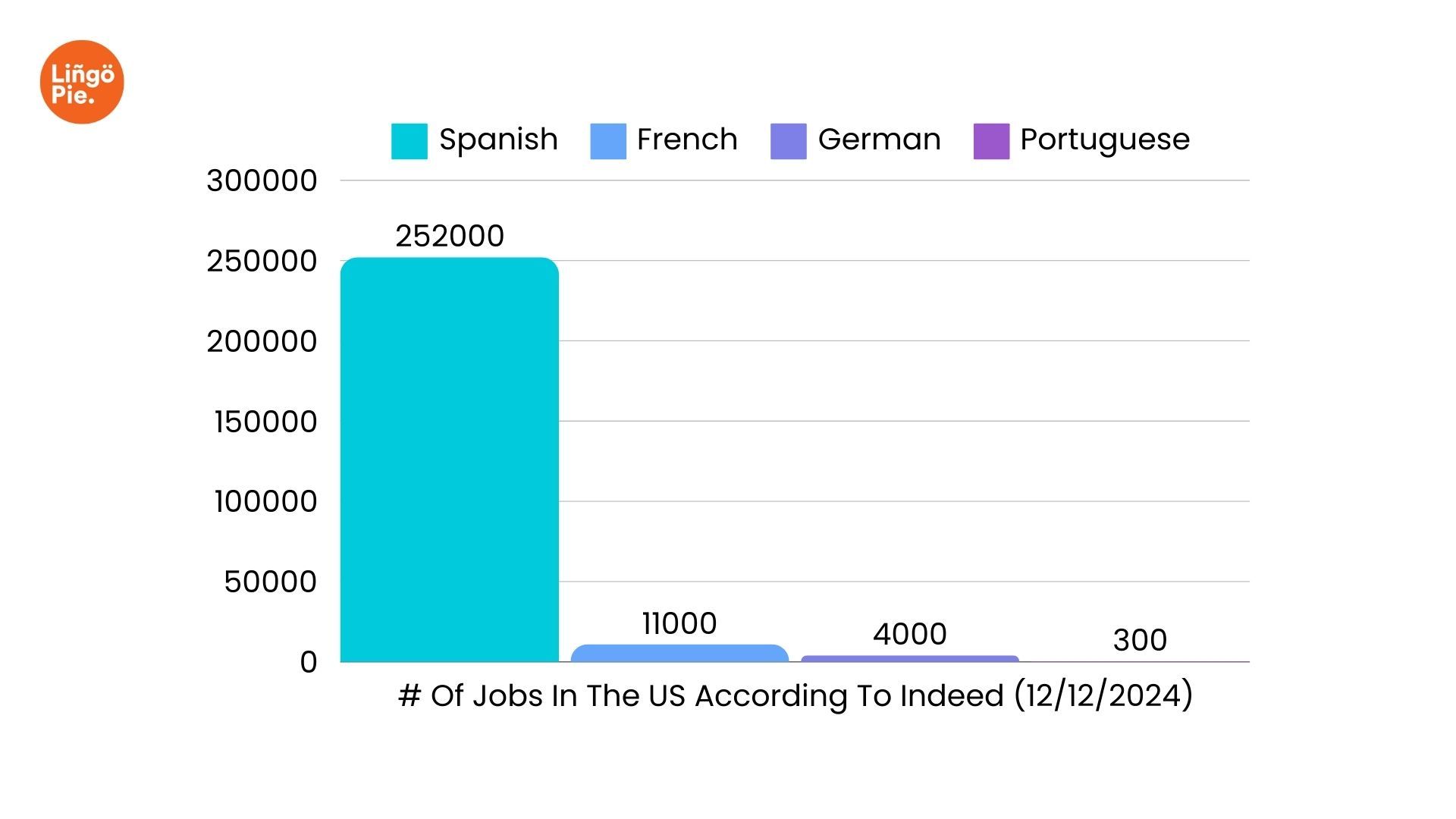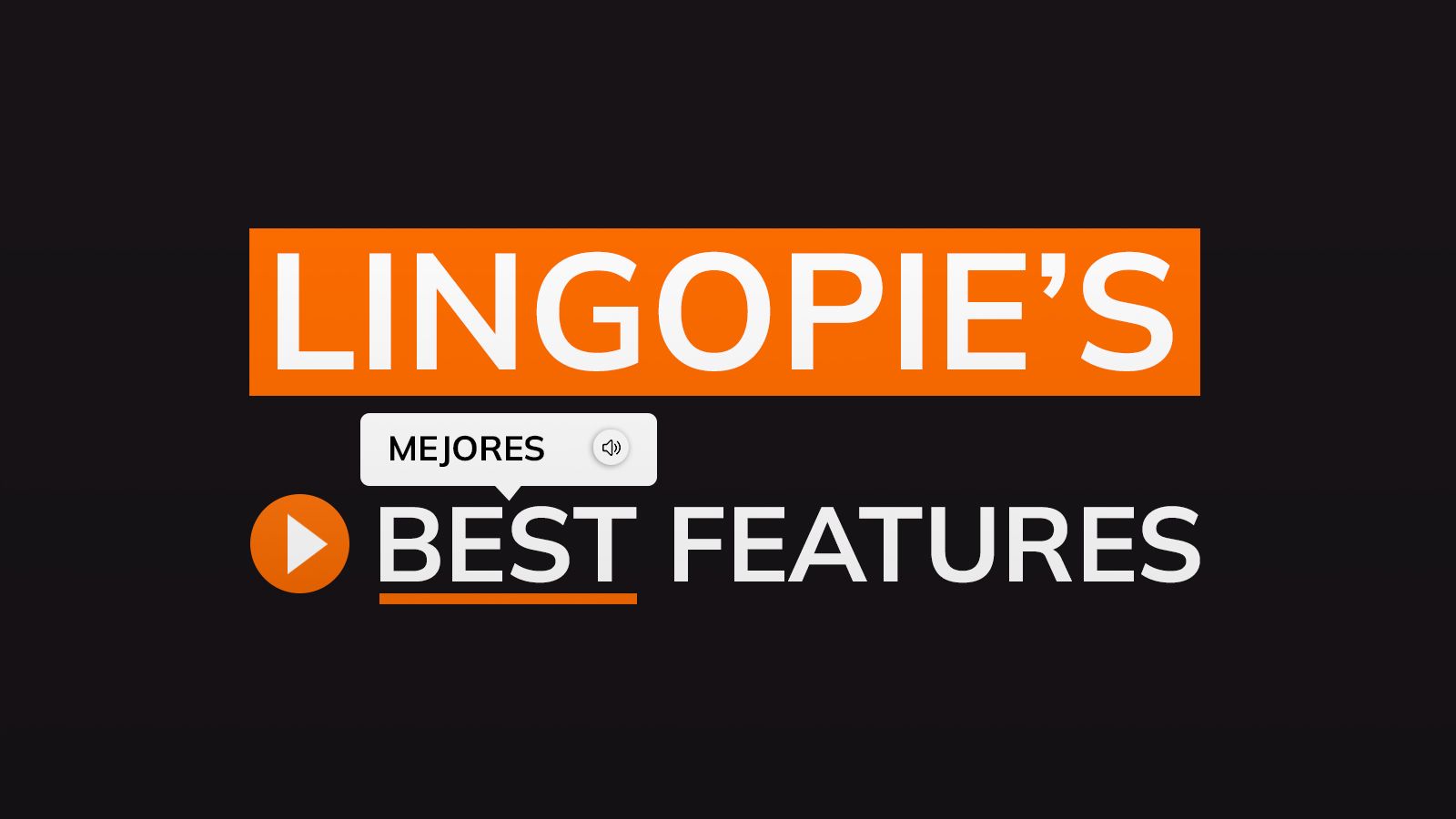You've probably heard it a million times - "Spanish is such a useful language to learn!" And sure, that's absolutely true, especially if you're living in the United States where Spanish speakers are everywhere from your local coffee shop to your doctor's office.
But let's be real - picking a language to learn is kind of like choosing what to watch on Netflix. There are just so many options, and you don't want to invest hours of your time before realizing you should've gone with something else.
Here's the thing though: Spanish isn't just popular because everyone says it is. There's actual science backing up why learning Spanish could be one of the smartest moves you'll make this year.
We've dug through the studies, crunched the numbers, and put together ten science-backed reasons why Spanish should be at the top of your learning list. Instead of focusing on the abstract benefits of learning Spanish, come back to this page and remember how Spanish will make your life better, fuller, and richer.

Reasons Why Should Learn Spanish
#1: The AI Industry Is Hungry for Spanish Speakers
The explosive growth of artificial intelligence has created an unexpected winner: Spanish speakers. With tech giants racing to develop AI models that can effectively communicate with the world's 500+ million Spanish speakers, being bilingual can help you enter a completely new field.

The numbers back this up too. A quick search on Indeed reveals over 200,000 jobs requiring Spanish language skills in the US - significantly outpacing other popular languages like French, Portuguese, and German combined. What's even more impressive is that most of these positions are related to tech and AI! Now, that's a clear signal of where the job market is heading!
From training chatbots to developing voice assistants, bilingual professionals are playing crucial roles in making AI technology accessible to Spanish-speaking communities worldwide. So if you're eyeing a career in tech, adding Spanish to your skill set could open doors you might not have even known existed.
Reason #2: Spanish Opens Doors Across Four Continents
Most people think Spanish is just for chatting in Barcelona or exploring Mexico City, but here's something that might surprise you: Spanish actually connects you with four different continents. Yes, you read that right - four!
While 22 countries have Spanish as their official language, its influence stretches far beyond just Latin America and Spain.
- The Philippines was a Spanish colony for over 350 years. Though Spanish is no longer listed as an official language, the Philippines still has a few Spanish-based local dialects.
- In Equatorial Guinea, 68% of the country speaks Spanish as a native language.
- Morocco considers Spanish as its second-most important foreign language, especially in the North of the country.
Chances are that even in distant Oceania, you are likely to find a lively Spanish-speaking expat community!
Reason #3: Spanish Is One of the Easiest Languages for English Speakers
Worried about getting tangled up in a new language? Here's some good news: if you speak English, Spanish is actually one of the friendliest languages you can learn. The U.S. Department of State even ranks it as a "Category 1" language - basically, it's in the group of languages that their diplomats can pick up the fastest. That's right - their experts say Spanish is just as easy to learn as Dutch or French!
Think about it - you already know more Spanish than you realize. Thanks to shared Latin roots, tons of English and Spanish words are practically cousins. Words like "artificial," "exploration," and "familiar" are nearly identical in both languages.
And while Spanish gets a bad rap for its gendered nouns and verb conjugations, it makes up for it with crystal-clear pronunciation rules. Unlike English, where "tough," "through," and "though" somehow all sound different, Spanish letters always make the same sound.
Reason #4: You Can Practice Spanish Without Leaving Home
Here's a mind-blowing fact: the United States has more Spanish speakers than Spain itself, second only to Mexico. According to the U.S. Census Bureau, over 41 million people speak Spanish at home in the United States, creating countless opportunities for real-world practice right in your own neighborhood.
Spanish is deeply integrated into American daily life, making immersion easier than ever. Start by streaming Spanish shows on Lingopie (where built-in learning tools make every scene a mini Spanish lesson), flip through Spanish radio stations during your commute, or practice ordering at your local taco shop in Spanish.
With Spanish being the second most-spoken language in the U.S., you'll find authentic opportunities to practice everywhere - no expensive plane tickets or vacation days required.
Reason #5: Spanish Is a Power Language in Global Politics
Spanish is actually one of the official languages of the world's most influential organizations. The United Nations, European Union, World Trade Organization, and Organization of American States all conduct key business in Spanish. In fact, it's one of the six official UN languages, putting it in the same league as English, Arabic, and Chinese.
For anyone interested in global affairs, Spanish proficiency opens doors at major international organizations and diplomatic missions. This isn't just about translation - it's about understanding the nuances of negotiations and policy discussions that shape our world. Whether you're aiming for a career at the State Department or dreaming of working at international NGOs, Spanish fluency is often a requirement, not just a nice-to-have skill.
Fast Facts: What Makes Spanish Special
With over 550 million speakers worldwide and its status as the second most spoken language by native speakers, Spanish continues to gain influence in global business, technology, and entertainment. In 2025, we're seeing a surge in demand for Spanish speakers in emerging fields like AI development, content creation, and international e-commerce, making it a particularly strategic language choice for career advancement.
Spanish learners can specialize in several varieties of the language, each with its own unique characteristics:
- European Spanish - Known for its distinct "th" sound and formal language patterns, popular in international business
- Mexican Spanish - The most widely spoken variety in North America, essential for U.S. business and cultural exchange
- Caribbean Spanish - Features unique pronunciation and vocabulary, vital for tourism and cultural industries
- Andean Spanish - Used throughout South America's mountain regions, important for international development work
- Rioplatense Spanish - Spoken in Argentina and Uruguay, known for its Italian influences and unique "sh" sound
- Central American Spanish - Crucial for international trade and development in the region
The best part? You can explore all these Spanish varieties right on Lingopie through TV shows and movies from different Spanish-speaking regions. Whether you're interested in Mexican telenovelas, Spanish crime dramas, or comedies with Argentine slang, you'll learn authentic accents and regional expressions directly from native speakers.
Start Your Spanish Journey Today
The evidence is clear: learning Spanish in 2025 isn't just a good idea - it's a strategic move backed by science and real-world opportunities. Want to learn Spanish while actually enjoying yourself? Try Lingopie.

Instead of boring textbooks, you'll learn through Spanish TV shows and movies you actually want to watch. Click any word you don't know, save phrases you like, and learn how real Spanish speakers talk today.
Thousands of people have already learned Spanish this way - just by watching shows they love. Why not give it a shot? Start your free trial today and see how fun learning Spanish can be.
Frequently Asked Questions
How long does it take to learn Spanish?
According to the Foreign Service Institute (FSI), English speakers can reach conversational fluency in Spanish in about 24-30 weeks (600-750 class hours) of dedicated study. However, this timeline can vary significantly based on your learning method, time commitment, and prior language experience. Many people achieve basic conversation skills within 3-4 months of consistent practice.
Is Spanish or French easier to learn?
Spanish is generally considered easier for English speakers to learn than French. Both languages share Latin roots with English, but Spanish has more predictable pronunciation rules and a more phonetic spelling system. The U.S. State Department categorizes both as Category I languages (easiest to learn), but Spanish's consistent rules and widespread presence in the U.S. give it an edge in accessibility.
Can I learn Spanish by watching TV shows?
Yes, you can learn Spanish through TV shows, especially when using platforms like Lingopie that are designed for language learning. Research shows that consuming media in your target language improves vocabulary, pronunciation, and listening comprehension. The key is active watching - paying attention to phrases, repeating what you hear, and using learning tools like interactive subtitles to understand context.
What's the difference between Spanish from Spain and Latin America?
While Spanish speakers from all countries can understand each other, there are some notable differences. The most obvious is the pronunciation of 'z' and 'c' (like 'th' in Spain vs. 's' in Latin America) and the use of "vosotros" (informal plural 'you') in Spain. Each region also has its own slang and some vocabulary differences - for example, "carro" (car) in Latin America vs. "coche" in Spain.
Do I need to learn Spanish grammar rules first?
No, you don't need to master grammar rules before starting to speak Spanish. Many successful language learners begin by learning common phrases and vocabulary, picking up grammar naturally through exposure and practice. While understanding basic grammar is helpful, focusing too much on rules early on can slow down your progress and reduce motivation. Start speaking first, and refine your grammar knowledge as you go.






![Language Reactor Review: Why Lingopie Is The Better Choice for Language Learning [2025]](/blog/content/images/2024/12/Language-Reactor-Review.jpg)

![30+ Modern English Slang Terms For Money [Guide]](/blog/content/images/size/w300/2025/06/Slang-term-for-money.jpg)
![5 Official Spanish Language Tests To Show Your Proficiency Level [Guide]](/blog/content/images/size/w300/2025/06/Spanish-Language-Tests.jpg)

![Why Memorizing Spanish Words Won’t Make You Fluent [Tips]](/blog/content/images/size/w300/2025/06/how-to-practice-spanish-vocabulary.jpg)